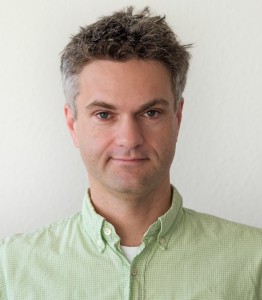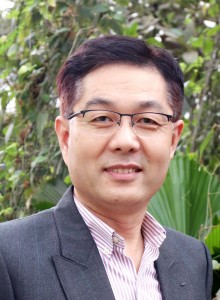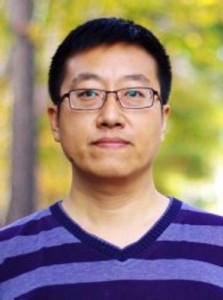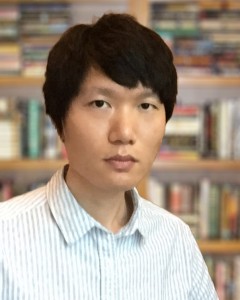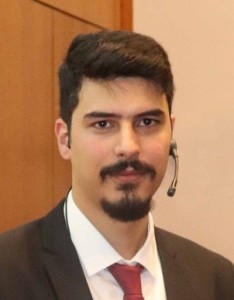Keynote Speakers
The IEEE International Conference on Data Mining series (ICDM) has established itself as the world’s premier research conference in data mining. The main goal of current workshop is to bring together academics, researchers and practitioners to discuss and reflect on recent challenges in neuroscience in the context of Deep Learning.
Workshop schedule
Workshop date: November 17, 2018
| NAME | TITLE OF TALK | FROM | TO |
| Dr. Tonio Ball | Deep learning for EEG analysis | 13.20 | 13.50 |
| Dr. Maxim Sharaev | Functional brain areas mapping in patients with glioma based on resting-state fMRI data decomposition | 13.50 | 14.05 |
| Dr. Qiang Wu | Deep Learning for Multimodal MRI Segmentation and Classification | 14.05 | 14.30 |
| Dr. Evgeny Burnaev | Deep Recurrent 3D Convolutional Neural Networks for Epilepsy and Depression Diagnostic from Structural and Functional MRI Data | 14.30 | 14.45 |
| Dr. Alexander Binder | Explaining Decisions of deep neural networks | 14.45 | 15.10 |
| Coffee break | 15.10 | 15.30 | |
| Dr. Amir H. Ansari | Neonatal Brain Monitoring Using Deep Convolutional Neural Networks | 15.30 | 15.55 |
| Ekaterina Kondrateva | Learning Connectivity Patterns via Graph Kernels for fMRI-based Depression Diagnostics | 15.55 | 16.15 |
| Dr. Cuntai Guan | Deep Learning in Brain Computer Interfaces | 16.15 | 16.45 |
| Dr. Junhua Li | Spatio-spectral RepresentationLearning from EEG for Walking Condition Classification | 16.45 | 17.15 |
| Maame Gyamfua Asante-Mensah | Medical Image De-noising Using Deep Networks | 17.15 | 17.30 |
Aims and Scope of the Workshop
The workshop is oriented to all potential applications of deep learning and matrix/tensor decomposition and networks in feature extraction, classification, recognition, segmentation, enhancing, clustering, anomaly detection, and prediction of brain and behavior data – as applied to the multi-modal brain data (MRI/fMRI/CT, EEG/MEG, and biomarker assays), especially for mental disorders. Special focus will be made on the practical aspects of how to design and train deep neural networks with appropriate reduction of the dimensionality, to achieve high classification performance and reliability.
Because of recent breakthroughs in machine learning, especially deep neural networks, it is expected that physicians will be able to completely rely on the machine interpretation of MRIs, CT, PET scans using deep learning in the nearest future. Though deep neural networks have revolutionized computer vision through the end-to-end learning (i.e., learning from the raw data), it is still difficult to accomplish the early detection of the major neurodegenerative diseases (such as ADHD, Autism, or Alzheimer’s) with the neural networks today, partially due to the need for development of optimization techniques in order to work with the Big Data in the most efficient way. These and related topics will be addressed at this workshop.
Call for Papers
We aim for a focus on the applications of Deep Learning to analysis of neuroimaging data. Topics of interests for the workshop include, but are not limited to:
- Magnetic Resonance Imaging (MRI) / functional Magnetic Resonance Imaging (fMRI)
- Electroencephalography (EEG)
- Magnetoencephalography (MEG)
- Positron Emission Tomography (PET)
- Near-infrared spectroscopy (NIRS)
- Computed Tomography (CT)
- Behavioral Data
- Physiological Data
- Electromyography (EMG)
Submission Guidelines
Paper submissions should be limited to a maximum of ten (10) pages, in the IEEE 2-column format (link), including the bibliography and any possible appendices. Submissions longer than 10 pages will be rejected without review. Though the limit is 10 pages, papers with more than 8 pages will need to pay extra page fee.
All submissions will be triple-blind reviewed by the Program Committee on the basis of technical quality, relevance to scope of the conference, originality, significance, and clarity. For further information, please visit the ICDM guidelines page http://icdm2018.org/calls/call-for-papers/.
Manuscripts must be submitted electronically. We do not accept email submissions. Online submission system is available here.
All the workshop dates might strictly follow the same deadlines as described on ICDM website http://icdm2018.org/key-dates/:
- Workshop paper submissions: August 7, 2018
- Workshop paper notification: September 4, 2018
- Camera-ready deadline and copyright forms: September 15, 2018
All the submissions should follow the same format and page limit as ICDM regular submission: http://icdm2018.org/calls/call-for-papers/
All accepted papers will be included in the IEEE ICDM 2018 Workshops Proceedings volume published by IEEE Computer Society Press, and will also be included in the IEEE Xplore Digital Library. Therefore, papers must not have been accepted for publication elsewhere or be under review for another workshop, conferences or journals.
Program Committee (in progress)
- Thirunavukarasu Balasubramaniam (Queensland University of Technology)
- Tonio Ball (University of Freiburg)
- Justin Dauwels (Nanyang Technological University)
- Fabien Lotte (Inria Bordeaux Sud-Ouest)
- Richi Nayak (Queensland University of Technology)
- Bartek Swiderski (Warsaw University of Life Sciences)
- Qibin Zhao (Brain Science Institute, RIKEN)
- Guoxu Zhou (Brain Science Institute, RIKEN)
- Maxim Sharaev (Skoltech)
Contact information of the organizers
- Alexander Bernstein (Skoltech)
- Evgeny Burnaev (Skoltech)
- Andrzej Cichocki (Skoltech)
- Dmitry Dylov (Skoltech)
- Ivan Oseledets (Skoltech)
Mailing address (common)
1 Nobel str., Moscow,
121205, Russia
